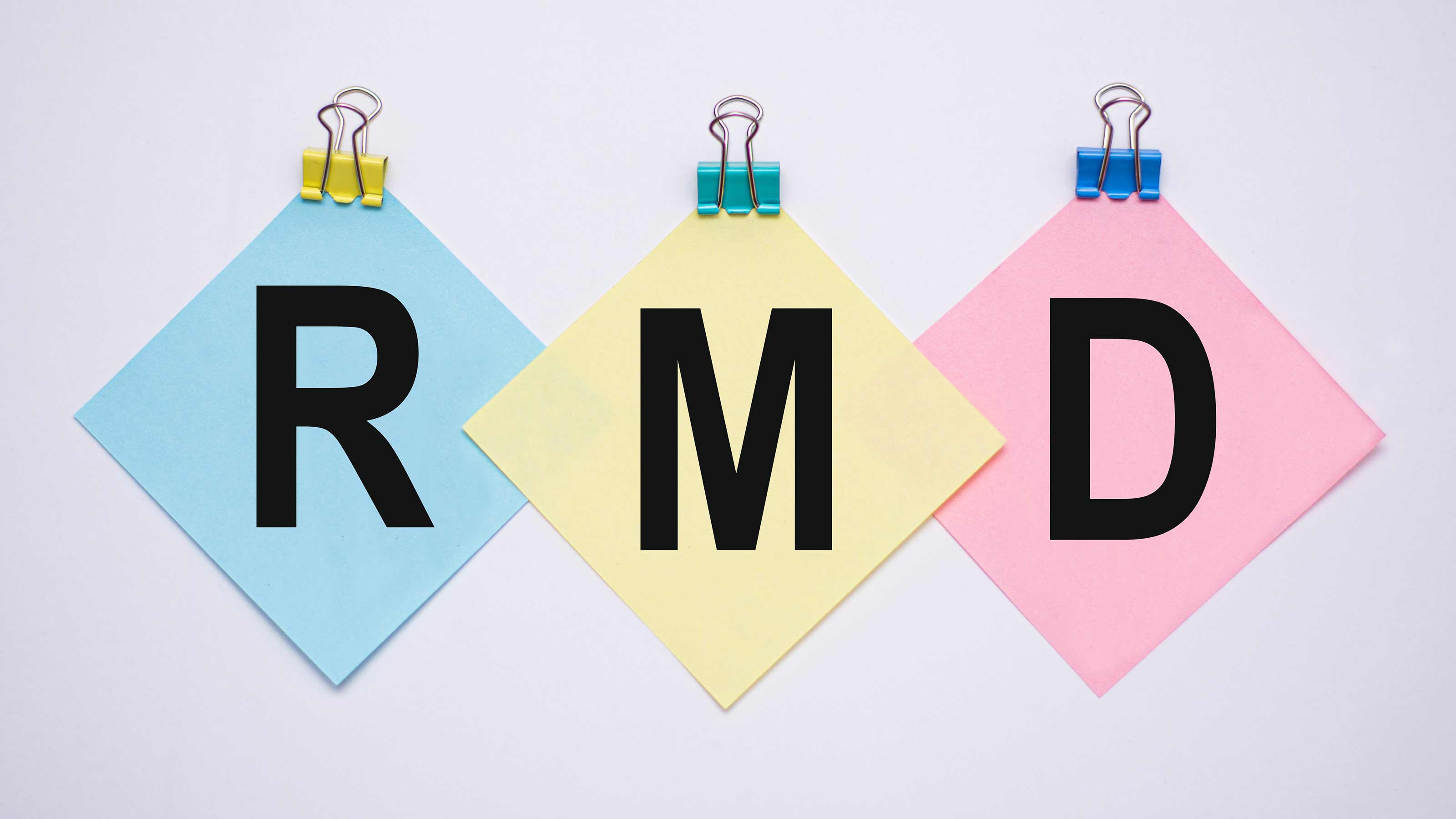5 Common Factors Affecting Retirement Income
Sponsored Content From Keybank

When it comes to planning for your retirement income, it’s easy to overlooksome of the common factors that can affect how much you’ll have available tospend. If you don’t consider how your retirement income can be impacted byinvestment risk, inflation risk, catastrophic illness or long-term care, and taxes,you may not be able to enjoy the retirement you envision.
Investment Risk
Different types of investments carry with them different risks. Sound retirement incomeplanning involves understanding these risks and how they can influence your availableincome in retirement.
Investment or market risk is the risk that fluctuations in the securities market may resultin the reduction and/or depletion of the value of your retirement savings. If you need towithdraw from your investments to supplement your retirement income, two importantfactors in determining how long your investments will last are the amount of thewithdrawals you take and the growth and/or earnings your investments experience. Youmight base the anticipated rate of return of your investments on the presumption thatmarket fluctuations will average out over time, and estimate how long your savings willlast based on an anticipated, average rate of return.
From just $107.88 $24.99 for Kiplinger Personal Finance
Become a smarter, better informed investor. Subscribe from just $107.88 $24.99, plus get up to 4 Special Issues

Sign up for Kiplinger’s Free Newsletters
Profit and prosper with the best of expert advice on investing, taxes, retirement, personal finance and more - straight to your e-mail.
Profit and prosper with the best of expert advice - straight to your e-mail.
Unfortunately, the market doesn’t always generate positive returns. Sometimes thereare periods lasting for a few years or longer when the market provides negative returns.During these periods, constant withdrawals from your savings combined with prolongednegative market returns can result in the depletion of your savings far sooner thanplanned.
Reinvestment risk is the risk that proceeds available for reinvestment might have to bereinvested at an interest rate that’s lower than the rate of the instrument that generatedthe proceeds. This could mean that you have to reinvest at a lower rate of return, ortake on additional risk to achieve the same level of return. This type of risk is oftenassociated with fixed-interest savings instruments such as bonds or bank certificates of deposit. When the instrument matures, comparable instruments may not be paying thesame return or a better return as the matured investment.
Interest rate risk occurs when interest rates rise and the prices of some existinginvestments drop. For example, during periods of rising interest rates, newer bondissues will likely yield higher coupon rates than older bonds issued during periods oflower interest rates, thus decreasing the market value of the older bonds. You alsomight see the market value of some stocks and mutual funds drop due to interest ratehikes, because some investors will shift their money from these stocks and mutualfunds to lower-risk fixed investments paying higher interest rates compared to prioryears.
Inflation Risk
Inflation is the risk that the purchasing power of a dollar will decline over time, due to therising cost of goods and services. If inflation runs at its historical long-term average ofabout 3%, the purchasing power of a given sum of money will be cut in half in 23 years.If it jumps to 4%, the purchasing power is cut in half in 18 years.
A simple example illustrates the impact of inflation on retirement income. Assuming aconsistent annual inflation rate of 3%, and excluding taxes and investment returns ingeneral, if $250,000 satisfies your retirement income needs this year, you’ll need$257,500 of income next year to meet the same income needs. In 10 years, you’ll needabout $335,979 to equal the purchasing power of $250,000 this year. Therefore, tooutpace inflation, you should try to have some strategy in place that allows your incomestream to grow throughout retirement.
Long-Term Care Expenses
Long-term care may be needed when physical or mental disabilities impair yourcapacity to perform everyday basic tasks. As life expectancies increase, so does thepotential need for long-term care.
Paying for long-term care can have a significant impact on retirement income andsavings, especially for the healthy spouse. While not everyone needs long-term careduring their lives, ignoring the possibility of such care and failing to plan for it can leaveyou or your spouse with little or no income or savings if such care is needed. Even ifyou decide to buy long-term care insurance, don’t forget to factor the premium cost intoyour retirement income needs.
A complete statement of coverage, including exclusions, exceptions, and limitations, isfound only in the long-term care policy. It should be noted that carriers have thediscretion to raise their rates and remove their products from the marketplace.
The Costs of Catastrophic Care
As the number of employers providing retirement health-care benefits dwindles and thecost of medical care continues to spiral upward, planning for catastrophic health-carecosts in retirement is becoming more important. If you recently retired from a job thatprovided health insurance, you may not fully appreciate how much health care reallycosts.
Despite the availability of Medicare coverage, you’ll likely have to pay for additionalhealth-related expenses out of pocket. You may have to pay the rising premium costs ofMedicare optional Part B coverage (which helps pay for outpatient services) and/or PartD prescription drug coverage. You may also want to buy supplemental Medigapinsurance, which is used to pay Medicare deductibles and co-payments and to provideprotection against catastrophic expenses that either exceed Medicare benefits or arenot covered by Medicare at all. Otherwise, you may need to cover Medicaredeductibles, co-payments, and other costs out of pocket.
Taxes
The effect of taxes on your retirement savings and income is an often overlooked butsignificant aspect of retirement income planning. Taxes can eat into your income,significantly reducing the amount you have available to spend in retirement.
It’s important to understand how your investments are taxed. Some income, likeinterest, is taxed at ordinary income tax rates. Other income, like long-term capital gainsand qualifying dividends, currently benefit from special—generally lower—maximum taxrates. Some specific investments, like certain municipal bonds,* generate income that isexempt from federal income tax altogether. You should understand how the incomegenerated by your investments is taxed, so that you can factor the tax into your overallprojection.
Taxes can impact your available retirement income, especially if a significant portion ofyour savings and/or income comes from tax-qualified accounts such as pensions,401(k)s, and traditional IRAs, since most, if not all, of the income from these accounts issubject to income taxes. Understanding the tax consequences of these investments isimportant when making retirement income projections.
Have You Planned for These Factors?
When planning for your retirement, consider these common factors that can affect yourincome and savings. While many of these same issues can affect your income duringyour working years, you may not notice their influence because you’re not depending onyour savings as a major source of income. However, investment risk, inflation, taxes,and health-related expenses can greatly affect your retirement income.
Read about other ways you can prepare by visiting key.com/retirees.
Interested in learning more? Get insights into economic trends and topics delivered to your inbox with Key Private Bank emails.
*Interest earned on tax-free municipal bonds is generally exempt from state tax if the bond was issued inthe state in which you reside, as well as from federal income tax (though earnings on certain privateactivity bonds may be subject to regular federal income tax or to the alternative minimum tax). But ifpurchased as part of a tax-exempt municipal money market or bond mutual fund, any capital gainsearned by the fund are subject to tax, just as any capital gains from selling an individual bond are.
Note also that tax-exempt interest is included in determining if a portion of any Social Security benefit you receive is taxable.
Any opinions, projections or recommendations contained herein are subject to change without notice and are not intended as individual investment advice. Investments are:
NOT FDIC INSURED – NOT BANK GAURANTEED – MAY LOSE VALUE – NOT A DEPOSIT – NOT INSURED BY ANY STATE OR FEDERAL AGENCY
© 2019 KeyCorp. KeyBank is Member FDIC. E92118 190404-566492
This content was provided by Key Private Bank. Kiplinger is not affiliated with and does not endorse the company or products mentioned above.
Profit and prosper with the best of Kiplinger's advice on investing, taxes, retirement, personal finance and much more. Delivered daily. Enter your email in the box and click Sign Me Up.
-
 5 Vince Lombardi Quotes Retirees Should Live By
5 Vince Lombardi Quotes Retirees Should Live ByThe iconic football coach's philosophy can help retirees win at the game of life.
-
 The $200,000 Olympic 'Pension' is a Retirement Game-Changer for Team USA
The $200,000 Olympic 'Pension' is a Retirement Game-Changer for Team USAThe donation by financier Ross Stevens is meant to be a "retirement program" for Team USA Olympic and Paralympic athletes.
-
 10 Cheapest Places to Live in Colorado
10 Cheapest Places to Live in ColoradoProperty Tax Looking for a cozy cabin near the slopes? These Colorado counties combine reasonable house prices with the state's lowest property tax bills.
-
 What Does Medicare Not Cover? Eight Things You Should Know
What Does Medicare Not Cover? Eight Things You Should KnowMedicare Part A and Part B leave gaps in your healthcare coverage. But Medicare Advantage has problems, too.
-
 15 Reasons You'll Regret an RV in Retirement
15 Reasons You'll Regret an RV in RetirementMaking Your Money Last Here's why you might regret an RV in retirement. RV-savvy retirees talk about the downsides of spending retirement in a motorhome, travel trailer, fifth wheel, or other recreational vehicle.
-
 Estate Planning Checklist: 13 Smart Moves
Estate Planning Checklist: 13 Smart Movesretirement Follow this estate planning checklist for you (and your heirs) to hold on to more of your hard-earned money.
-
 Should You Rent in Retirement?
Should You Rent in Retirement?Making Your Money Last Renting isn't right for all retirees, but it does offer flexibility, and it frees up cash.
-
 How to Get Retirement Income You Can Count On – for Life
How to Get Retirement Income You Can Count On – for LifeSponsored Content from Athene
-
 Breaking down 6 common retirement planning myths
Breaking down 6 common retirement planning mythsSponsored Content from Ameriprise Financial
-
 6 RMD Changes We Could See This Year
6 RMD Changes We Could See This YearMaking Your Money Last Congress is considering two bills that would make major changes to required minimum distributions. Could your RMDs be affected?
-
 A Kiplinger-ATHENE Poll: Retirees Are Worried About Money
A Kiplinger-ATHENE Poll: Retirees Are Worried About MoneyMaking Your Money Last Concerns about recession, inflation and health care costs weigh on retirees and near retirees.